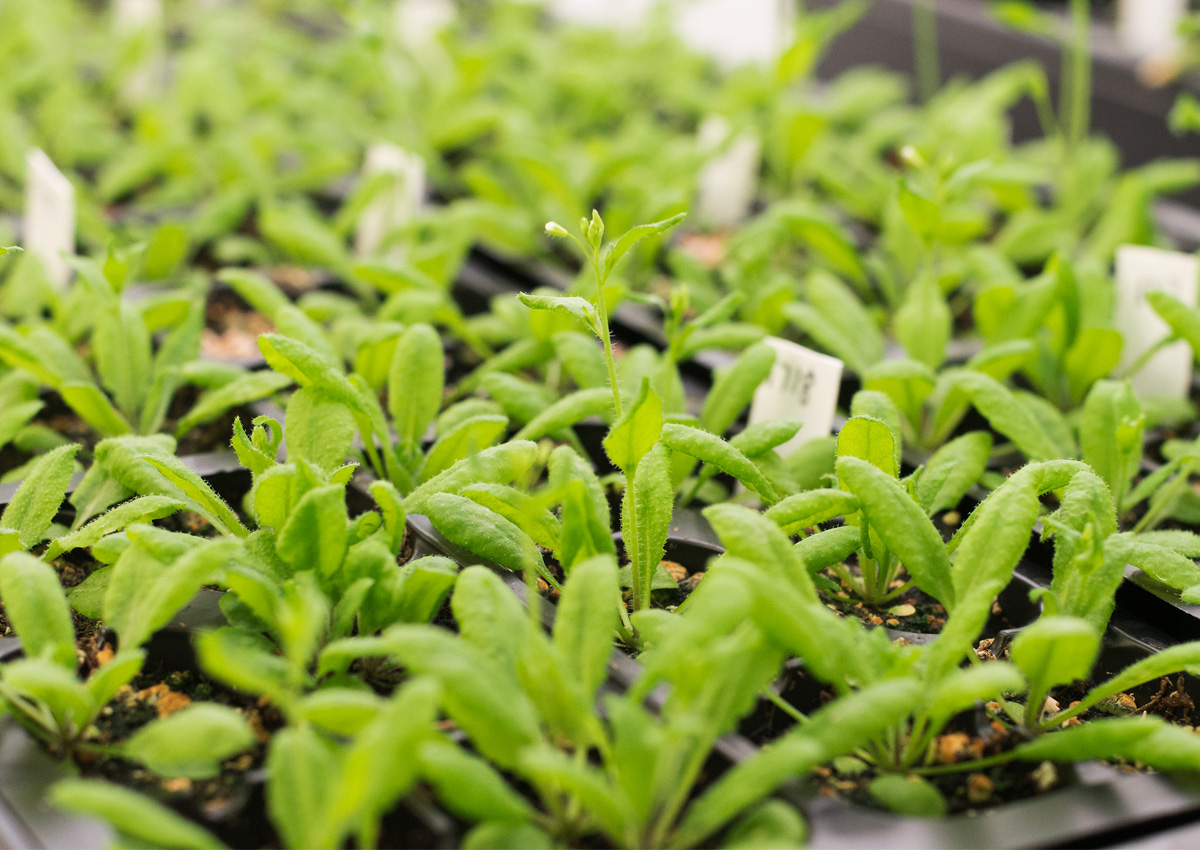
Researchers Develop Plants with Improved Oxylipin Production Using Transgenic Techniques
February 23, 2022| |
Researchers from the Tokyo Institute of Technology (Tokyo Tech) have developed a novel plant-based platform to boost the production of KODA, a plant oxylipin produced in extremely low amounts, which helps plants cope with environmental stressors.
9-hydroxy-10-oxo-12(Z),15(Z)-octadecadienoic acid, or KODA, belongs to the class of plant oxylipins. Oxylipins help plants recover from stresses like physical injuries and infections. Many plants naturally synthesize KODA, however, the amount is usually low in most, with the free-floating duckweed Lemna paucicostata an exception.
Tokyo Tech researchers improved KODA production in plants using transgenic techniques. They introduced key genes involved in enhanced KODA production in duckweed in two separate plant species—Nicotiana benthamiana, related to the tobacco plant, and Arabidopsis thaliana.
Two key genes from the duckweed species that improved KODA production—9-lipoxygenase (or 9-LOX), and allene oxide synthase (or AOS) led to the improved yield of KODA in both plants. However, there was interspecies variation in terms of the localization of KODA in the two species. In N. benthamiana, transient expression of 9-LOX and AOS led to increased expression of KODA in the leaves. In Arabidopsis, to achieve sustained KODA biosynthesis, the proteins coded by the two genes had to be localized to the subcellular structures plastids, endoplasmic reticulum, or lipid droplets.
For more details, read the article in Tokyo Tech News or the research article in the Journal of Experimental Botany.
| |
You might also like:
- Anti-stress Function of AtPDI1 Linked to Disulfide Isomerase Activity
- Gene Inserted in Tobacco Plant Sheds Light to Increased Heat Stress Resistance
- CBF/DREB1 Gene Family in Lettuce Confers Multiple Stress Tolerance
Biotech Updates is a weekly newsletter of ISAAA, a not-for-profit organization. It is distributed for free to over 22,000 subscribers worldwide to inform them about the key developments in biosciences, especially in biotechnology. Your support will help us in our mission to feed the world with knowledge. You can help by donating as little as $10.
-
See more articles:
-
News from Around the World
- Entomologist Shares Impact of Bt Brinjal in Bangladesh
- Nebraska-led Project to Empower Youth on Agricultural and Scientific Innovations
- GE Cotton Could Help Improve Food Security
- Scientists Create CROPSR, A Tool to Accelerate Genetic Discoveries
- Researchers Develop Plants with Improved Oxylipin Production Using Transgenic Techniques
- Rothamsted Research Scientists Engineer Plant to Replace Fossil Fuels as Source of Key Industrial Compounds
-
Research Highlights
- Biosafety Evaluation Concludes GM Cotton Not Harmful to Rats
- Analysis of Root Systems Genes Helps Identify Candidate Genes for Water Stress Adaptation in Rice
-
Read the latest: - Biotech Updates (December 10, 2025)
- Gene Editing Supplement (December 17, 2025)
- Gene Drive Supplement (February 22, 2023)
-
Subscribe to BU: - Share
- Tweet

